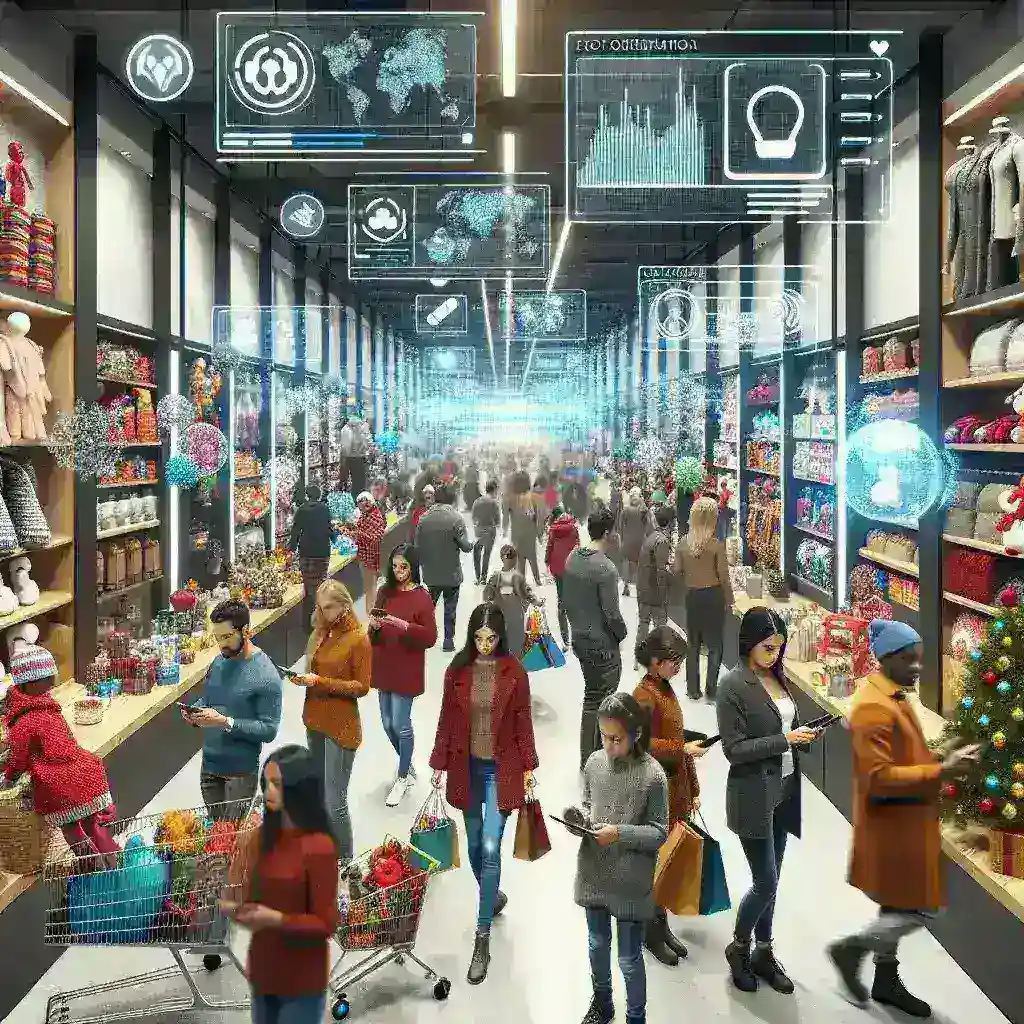Introduction
In the ever-evolving world of retail, companies are continuously seeking innovative approaches to attract and retain customers. One of the most transformative trends in recent years is the use of artificial intelligence (AI) in merchandising. In this article, we will delve into Target’s experimentation with AI-generated seasonal merchandising campaigns in the United States, exploring its implications, effectiveness, and what the future may hold.
The Shift Towards AI in Retail
The integration of AI in retail is not just a passing trend; it is a fundamental shift in how businesses operate. Retailers are leveraging AI to streamline operations, enhance customer experiences, and optimize marketing strategies. According to a report by McKinsey, businesses that have adopted AI in their operations have seen a 5-10% increase in productivity. This statistic underscores the potential of AI to revolutionize traditional retail practices.
AI in Merchandising: A New Frontier
Merchandising is at the forefront of retail strategy, influencing how products are presented to consumers. AI can analyze vast amounts of data, enabling retailers to create personalized and targeted campaigns. Target, a leader in retail innovation, is now testing AI-generated seasonal merchandising campaigns to enhance customer engagement and drive sales during key shopping periods.
The Seasonal Campaign Strategy
Seasonal campaigns have been a staple in retail, often marking significant shopping periods such as back-to-school, Halloween, Thanksgiving, and Christmas. Target’s approach to seasonal merchandising has evolved with the introduction of AI. By using AI tools, Target is able to:
- Analyze Consumer Behavior: AI algorithms can analyze customer purchasing patterns, preferences, and trends, allowing Target to create campaigns that resonate with consumers.
- Optimize Product Placement: AI can predict which products will perform well during specific seasons, enabling Target to optimize product placement and inventory levels.
- Personalize Marketing Efforts: With insights gained from AI, Target can tailor its marketing messages to specific demographics, enhancing the relevance of its campaigns.
Real-World Applications
Target’s foray into AI-generated seasonal merchandising campaigns has already produced notable successes. For instance, during the last holiday season, Target implemented an AI-driven approach to promote its home goods and apparel lines. By analyzing consumer data, Target was able to identify trends and preferences, creating campaigns that attracted a significant increase in foot traffic and online sales. According to Target’s Q4 earnings report, the retailer experienced a 20% growth in sales during the holiday season, largely attributed to its innovative merchandising strategies.
Challenges and Limitations
Despite the promising potential of AI in seasonal merchandising, there are inherent challenges. One significant concern is the reliance on accurate data. AI algorithms are only as good as the data they analyze. If the data is flawed or outdated, the resulting campaigns could miss the mark. Furthermore, there is the challenge of maintaining a personal touch in an increasingly automated environment. While AI can provide insights, it cannot replace the human element that often drives customer loyalty.
Future Predictions
As AI technology continues to advance, the future of seasonal merchandising looks promising. Experts predict that AI will enable retailers to create even more dynamic and responsive merchandising strategies. For instance, as real-time data becomes more accessible, retailers like Target could adapt their campaigns on the fly based on immediate consumer reactions. This level of agility could revolutionize how seasonal campaigns are executed, making them more effective than ever before.
Pros and Cons of AI-Generated Campaigns
Pros
- Data-Driven Insights: AI provides valuable insights into consumer behavior, allowing for more informed decision-making.
- Increased Efficiency: Automated processes reduce the time and resources needed to develop marketing campaigns.
- Enhanced Personalization: Targeted campaigns lead to improved customer engagement and satisfaction.
Cons
- Data Dependency: Poor data quality can lead to ineffective campaigns.
- Lack of Human Touch: Over-reliance on AI may reduce the personal connection with customers.
- Implementation Costs: Investing in AI technology and training can be costly for retailers.
Conclusion
Target’s exploration of AI-generated seasonal merchandising campaigns marks a significant step forward in the retail industry. By leveraging the power of AI, Target is not only enhancing its marketing strategies but also setting a new standard for customer engagement. As retailers continue to embrace AI, we can expect to see more innovative and personalized shopping experiences in the future.
In conclusion, as consumers’ expectations evolve, so too must the strategies retailers use to meet those expectations. Target’s commitment to testing AI in seasonal merchandising is a testament to the ongoing transformation of the retail landscape, and it will be exciting to see how these strategies develop and succeed in the coming years.

